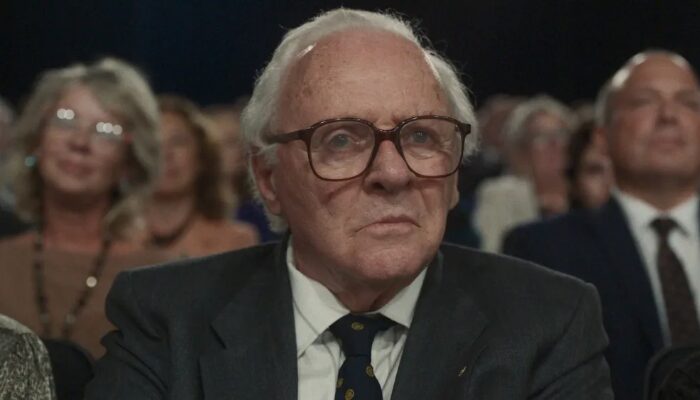Film Review – SCOOP (2024): An Unnecessary Adaptation that Milks Salacious Material for Self-Congratulatory Purposes
Scoop Film Review
Scoop (2024) Film Review, directed by Philip Martin, written by Samantha McAlister, Peter Moffat and Geoff Bussetil and starring Billie Piper, Rufus Sewell, Gillian Anderson, Romola Garai, Keeley Hawes, and Colin Wells.
Based on Scoops, a book by Samantha McAlister, Scoop (2024) is a biographical drama which focuses on the journalistic process which made the Newsnight interview with Prince Andrew (Rufus Sewell) possible. Screenwriters Peter Moffat and Geoff Bussettil adapt the self-reflective revelations from the book. Director Philip Martin presents the point of view of Sam McAlister (Billie Piper) as she secures an interview between the Prince and Emily Maitlis (Gillian Anderson). While there are great performances and the film maintains an engaging pace, the lasting impression of this work is that McAlister seeks protagonism and more attention for locking in the interview—her search for more kudos feels queasy with a real sex trafficking scandal as the foreground. There was no aura of hope for the victims in the film; it was odd how it was Prince Andrew’s character, the one maligned for his friendship with Epstein, who wished “they would be able to repair their lives.” Without more robust presence, they are only presented as victims, not real people. Indeed, a story based on fiction would have required more creativity but would lack the egotistical aftertaste which stays with the viewer.
This movie does not seem very necessary, given that the fate of Prince Andrew has already been to disappear from public appearances: the outcome of the interview has already unfolded. For this reason, this movie feels hackneyed, and it approaches a scandal from a very easy angle without posing interesting challenges. There is definitely a missed opportunity to explore uncomfortable questions, such as, “Why do we choose the self-serving competition over who can show the most disdain for a convicted sex offender’s friend instead of focusing our energies on (the less salacious topic of) educating people on consent?” For a movie centered on the desire of a TV show to survive in the age of social media, it was strange to see Scoop locate that answer in the court of getting canceled on Twitter. With such an inherent contradiction, the film loses stability. All in all, the purpose of showing how the interview was secured is not sufficient reason to create an entire film. Beyond insisting the audience applaud Sam McAlister for her persuasive and logistical abilities or appreciating how good writing and cinematography manage to entertain for its duration, there is no additional takeaway from watching this film.
Despite my reservations with the reliance on a sex trafficking scandal and self-celebration to develop a story, the film is not without its merits. Taken as a whole, Scoop utilizes the various urban settings, including New York City, to its advantage in the interest of presenting a fast-paced story where the futures of traditional media and of a member of the royal family are at stake. The subtle inclusion of McAlister teaching her son healthy ways to talk to girls is a powerful contrast with the sex trafficking scandal that grips the heart of her work life while penetrating access to the Royal Family. It was interesting to see how Billie Piper managed to be a protagonist in a story where she is considerably the fly-on-the-wall, especially during the pivotal interview scene. Additionally, Romola Garai’s portrayal of Esme Wren informs the main message in the film. Her serious character demonstrates how the work behind-the-scenes of the interview was just as crucial as the actual interview with Maitlis herself. It should also be noted that Philip Martin is careful not to give too much centrality to Jeffrey Epstein (Colin Wells), since doing so would not be tasteful. Taken together, these merits demonstrate that when the premise is not very innovative, such as is the case with Scoop, the narrative techniques and performative elements must intervene to make a film with merit.
Rating: 5/10
Leave your thoughts on this Scoop review and the film below in the comments section. Readers seeking to support this type of content can visit our Patreon Page and become one of FilmBook’s patrons.
Readers seeking more film reviews can visit our Movie Review Page, our Movie Review Twitter Page, and our Movie Review Facebook Page.
Want up-to-the-minute notifications? FilmBook staff members publish articles by Email, Google News, Feedly, Twitter, Facebook, Instagram, Tumblr, Pinterest, Reddit, Telegram, Mastodon, Flipboard, and Threads.
Related Articles
FilmBook's Newsletter
Subscribe to FilmBook’s Daily Newsletter for the latest news!













